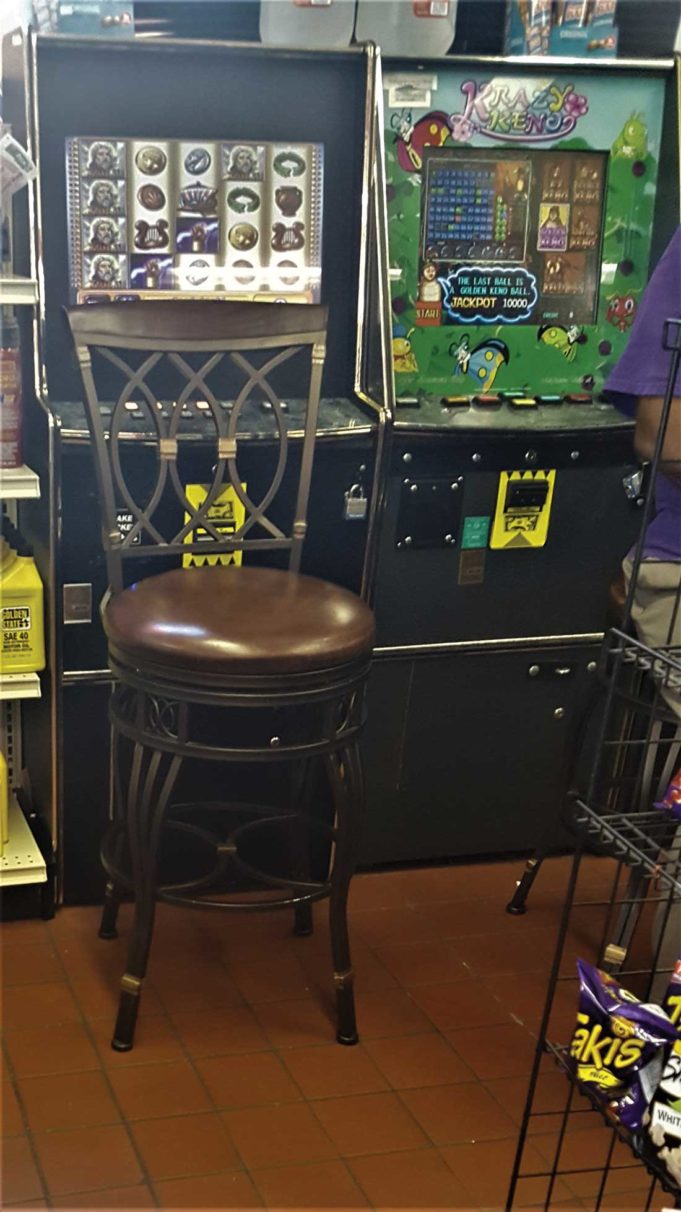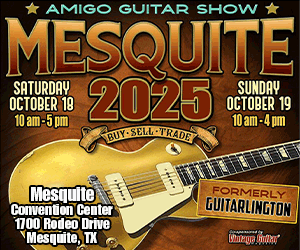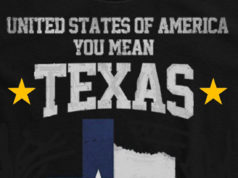Game rooms are hitting the jackpot in Fort Worth three months after a controversial legal decision. In April, Tarrant County District Judge Melody Wilkinson threw out some regulations that limited where game rooms could operate. Business owners who use game rooms to attract customers are still smiling.
“It’s 50 percent of the business,” said an employee who wished to remain anonymous at a Texaco station in North Texas. “It’s mainly an old person thing. But even young folks are coming in here playing.”
The clerk estimated that 40 or 50 people visit regularly to play the games. The Texaco’s convenience store is small with only a few gas pumps out front. People drop in to pay for gas or grab a snack or a soda.
But some patrons stick around to sit down at one of the four video casino games perched by the windows on the side. Without the machines, the employee said, “We won’t get as many customers. We won’t get as many regulars.”
Pointing at the Texaco logo on the side of the roof hanging over the station’s pumps, she said, “It would affect how much money they make.”
Money earned from the regulars accounts for a good chunk of the store’s day-to-day revenue, the employee said.
When asked if the machines’ removal could influence her hours and wages, she said, “Probably so, most likely.”
Like this dinky gas station, some businesses in Fort Worth could soon be adding one-armed bandit profits to their bottom lines. The regulations Wilkinson’s ruling removed were part of ordinances passed by Fort Worth in 2014. The judge’s decision means that the games are no longer restricted to industrial areas, nor are they prohibited from being within 1,000 feet of any school, neighborhood, church, hospital, or other games. Wilkinson did leave some regulations untouched, such as having fewer than 30 machines, limiting hours of operation and signage, and requiring players to be at least 18.
As reported by the Star-Telegram, there were an estimated 2,000 game rooms across Fort Worth just around the time the ordinances were passed.
It’s not clear when game rooms became commonplace in Fort Worth, Tarrant County, or even Texas for that matter, but there is a law dealing with them that dates back to 1993.
As reported by the Dallas Morning News in 1993, the law known as the “fuzzy animal bill” (coined at time by State Sen. O.H. “Ike” Harris) allowed games to pay out noncash prizes worth no more than five dollars. Before this, the Texas Penal Code allowed no payouts whatsoever. This fuzzy animal bill came into fruition to allow places like Chuck-E-Cheese’s and Dave & Busters to give out prizes and still function legally.
Today, game rooms follow the same mandate as the arcades. At least, the legal game rooms do. There are some that bend the rules just a bit, allowing players to win up to hundreds or even thousands of dollars in cash, as Beth Bosillo, an employee at Lone Star Bingo on the East Side, told me.
Many local bingo parlor operators say they don’t appreciate these illegal game rooms. They “don’t pay taxes,” Bosillo said, and they take away customers from the bingo parlors, many of which are charitable.
The night I visited Lone Star, the payouts were $500 a win, although winners could take home only $475 after the parlor removed 5 percent for taxes. The deducted $25 is split between the city and the state.
The chance of winning thousands of dollars may be worth the possible hassle from a cop or, worse, a Class C misdemeanor ticket (as stated in the Texas Penal Code). But when it comes to shelling out the cash, the extralegal venues can have odd methods of doing so. As Bosillo told me, some game rooms will make winning players go to Walmart, spend money equal to the worth of their winnings, and turn in the receipt at the game room to receive the payment.
“I was really mad when they pushed all the game rooms to the industrial areas,” said another anonymous source, the manager of a bingo parlor on Jacksboro Highway which used to operate a legal game room inside until 2014’s ordinances were passed. Small with only around 20 machines, the game room is still in the building but run separately by someone else.
I asked her how the person who took over the game room can still run it while she couldn’t, since technically it’s still not in an industrial area. Just like a sign posted by the room’s door, she told me that the room had no affiliation with the bingo parlor.
The person who runs the game room didn’t want to speak to me. The owner of the bingo parlor said the person running the game room got in the clear to run it legally, though the owner of the bingo parlor doesn’t know how since she doesn’t pay attention to it.
Three years later, the parlor’s manager is still not too happy about her loss. But she’s seen the advantages of being without the game room, especially as the overseer of a bingo parlor.
“For businesses like [bingo], I think [game rooms] give the customers entertainment,” the manager said. “On the other hand, the game room distracts players from the real game, bingo.”
People, she said, play on the machines for “immediate gratification with payouts” (even if they’re petty) and are “only contending against the machine and not a room full of people,” like in bingo.
Wilkinson’s ruling is a new opportunity for the manager to renew ownership of the game room. But the manager said only “bigger payouts” can persuade her to take it back. Bigger payouts mean more players coming to the machines and paying higher amounts for bets –– meaning the room would bring in more profit than it did before.
Either way, the manager said she’s indifferent.
“I’m OK with the way things are now,” she said. “We have loyal customers in bingo, and I don’t have to worry too much here.”
Wilkinson’s decision is a win for Texans passing on trips to Oklahoma, Louisiana, and other casino territories, but for business owners, it’s kind of a gamble. l











